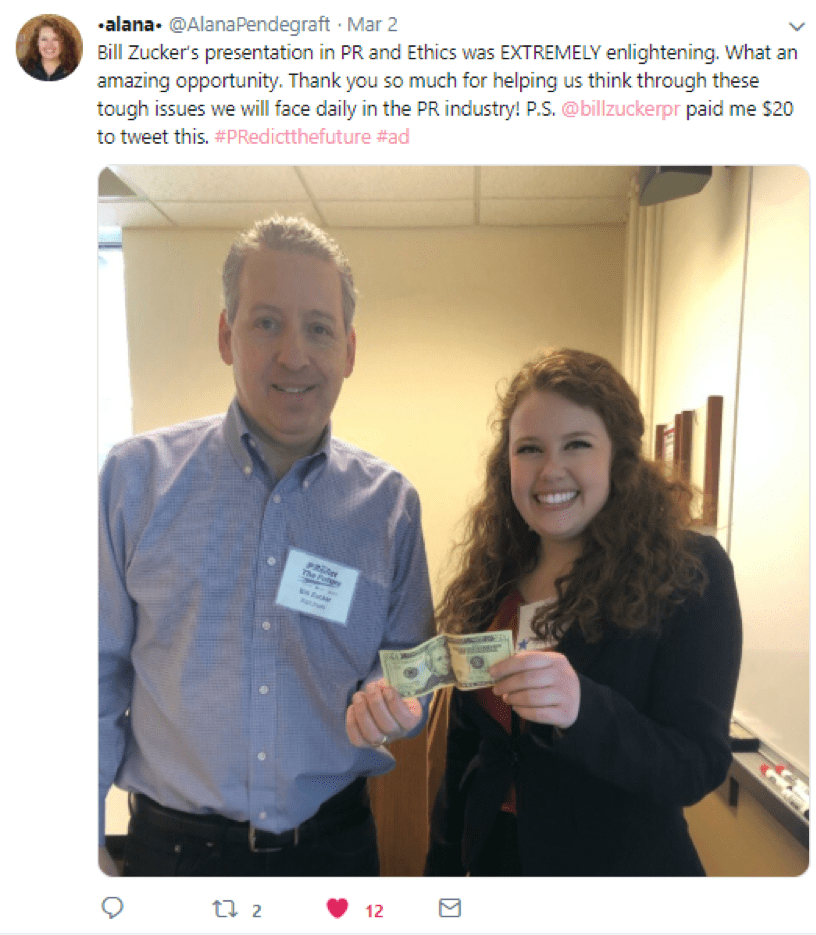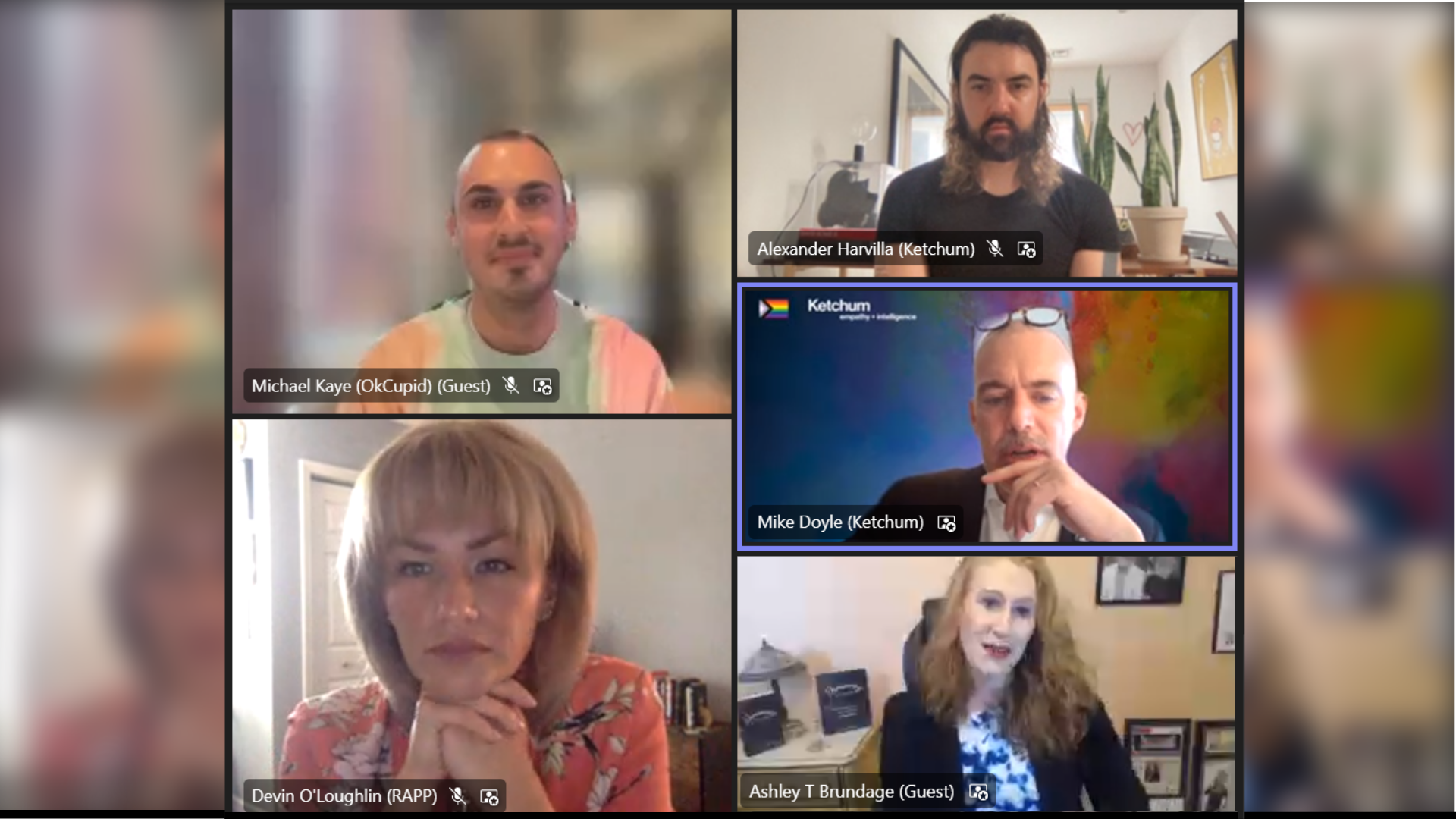I played an unfair trick on a member of the Public Relations Student Society of America (PRSSA) this month that helped highlight a simple truth: The ever-faster pace and growing digital nature of our industry will create a much bigger challenge for the next generation of PR Pros in maintaining our ethical standards.
At this year’s PRSSA PRedict the Future conference, I had the pleasure of leading a “what would you do?” style seminar on ethics in public relations. We took some actual cases and some mock scenarios and gave students a chance to decide how they would handle ethical dilemmas. I began by offering $20 to Columbia College student Alana Pendegraft if she would post a nice tweet about my presentation (and let’s face it, what college student wouldn’t jump at the chance for quick cash?). I helped her write the tweet; she started to send it – and then we stopped her.
The Gen-Z students graduating into our ranks this year are digital natives – they’ve been on social media since middle school. Alana has almost 1300 Instagram followers, about 840 Twitter followers and has sent almost 4,000 Tweets. The act of a social media post is second nature to her. And in the digital age, it takes just a split second to miss the simple questions of disclosure and ethics this Tweet required: Is this her honest opinion? Has she seen enough of my presentation to form an opinion? Did she disclose the receipt of compensation? The answer to all three was no.
To their credit, today’s PR students know the reputational challenge they are walking into, noting others believe their field is about “spinning” and “covering up” instead of brand building. I am impressed by their desire to ensure that in a day where paid influence is routine, they have a role to uphold the truth. But it won’t be easy.
Increasingly, a PR professional’s job is about making dozens of decisions a day with external reputation implications and little time to vet. Community management, Influencer relations and real-time media relations (such as programs powered by Ketchum’s StoryWorks) all require an understanding of PR ethics in the moment. While Ketchum, PRSA and the Federal Trade Commission all have specific guidelines outlining proper behavior and disclosure, there’s often no time to consult and pour over the rules as you act with agility. We need to know them well, and more importantly, know the broader mores that justify the responsibility we have been given to uphold brand reputation.
The advice I give to our newest professionals feels as much like life lessons as industry advice but it’s good for all of us to learn and remember as the speed of our work continues to accelerate:
- Tell the truth…always
- Don’t write, create or release anything (even an email) that you wouldn’t be proud to hold up later under the light of full scrutiny
- If a colleague or client asks you to do something that seems fishy, it probably is. If you have doubts…
– Ask a trusted colleague
– Go to your supervisor
– Talk to HR
– Check with your company’s legal counsel - Disclosure is not an option, it’s a must. Our ethics say so, the FTC says so, and our reputation depends on it
- Study the rules and know your obligations
- When in doubt, the Golden Rule applies, as does common sense.
With this in mind, we gave Alana a redo on her paid tweet. She waited to hear my presentation, wrote her own words, and twice disclosed she was a paid influencer.

A special thanks to Alana and the session’s volunteer notetaker, Elise Bonin, a junior at Loyola University Chicago who serves as Public Relations Chair for her school’s chapter of PRSSA.
Elisa, Alana and their classmates will help bring to life the next era of our industry. Let’s help them make sure the one thing that doesn’t change is our adherence to the principles that make public relations great.



